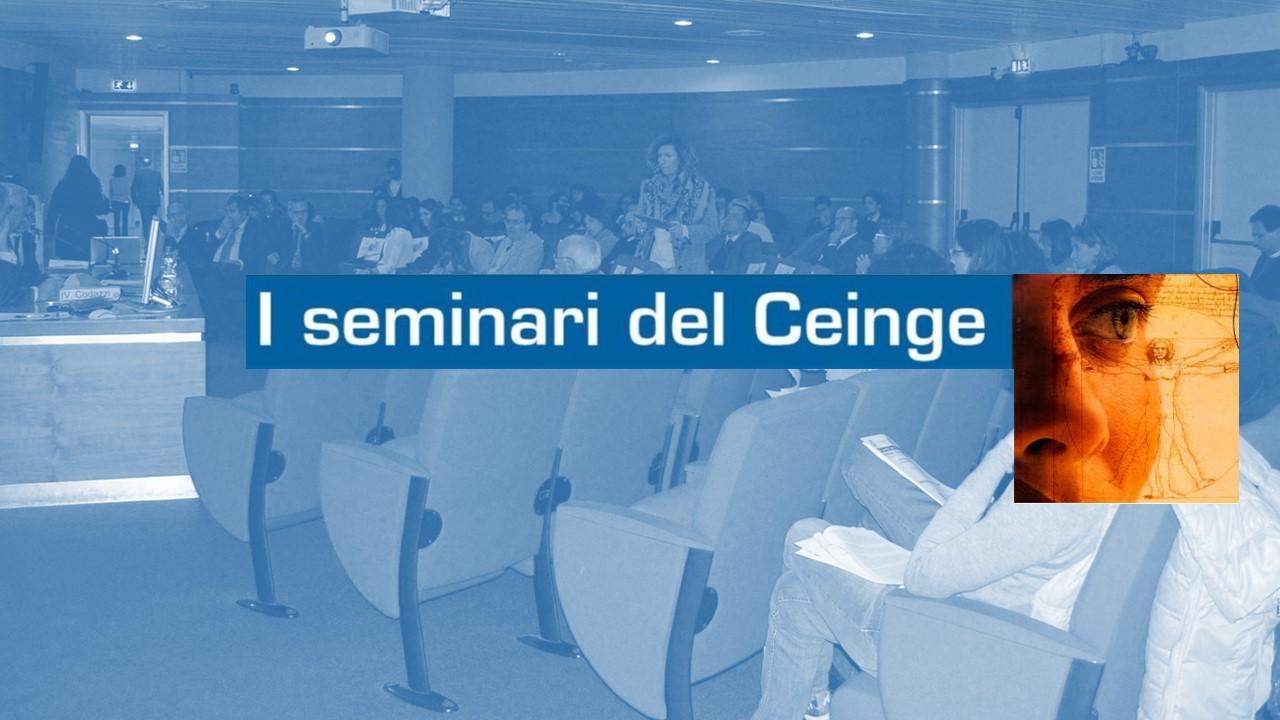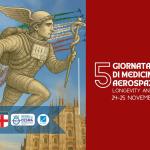
Diagnosi prenatali 2019: la consulenza genetica
Sabrina Giglio, genetista, terrà un seminario dal titolo "Prenatal diagnosis 2019: the Genetic counseling". La prof. Giglio è direttore della Genetica medica dell'AOU Meyer di Firenze ed è direttore della scuola di specializzazione in Genetica medica dell'Università degli Studi di Firenze.
Il seminario avrà inizio alle ore 15.30 e si terrà nell'Auditorium CEINGE.
Ospita il prof. Achille Iolascon.
ABSTRACT:
Prenatal genetic counselors work with individuals, couples, or families who have an increased chance of having a child with a birth defect or genetic condition. Those who are already pregnant or are considering having a child in the future can meet with a prenatal genetic counselor to learn more about the condition in question, understand their risks more clearly, and discuss options for prenatal screening, testing, and/or assisted reproduction techniques such as sperm and egg donation.
Prenatal genetic counseling is the process where parents can learn more about:
- How likely it will be that their child would have a genetic disorder
- What tests can check for genetic defects or disorders
- Deciding whether or not you would like to haven these tests
Couples who want to have a baby can have tests before they get pregnant.
Prenatal counselors also help many families who do not have an increased chance of having a child with a birth defect or genetic condition understand prenatal screening and testing options. Procedures such as blood tests and ultrasounds may be able to give a better idea if a developing baby has a chance of having birth defects or a genetic condition.
Over recent years, advances in new technologies, such as SNP-array, next generation sequencing (NGS) technology along with the discovery of cell-free fetal DNA (cffDNA) in maternal plasma have transformed prenatal diagnosis.
As well as the development of a highly sensitive screening test for fetal aneuploidies, these advances have yielded progress in three main areas which we shall discuss here.
In clinical diagnostics, both array comparative genomic hybridization (array CGH) and single nucleotide polymorphism (SNP) genotyping have proven to be powerful genomic technologies used for the evaluation of developmental delay, multiple congenital anomalies, and neuropsychiatric disorders. Although the resolution of a single exon across the genome is not feasible for SNP arrays, SNP arrays show greater sensitivity for the detection of low-level mosaic aneuploidies and chimerism and offer the ability to detect copy number neutral regions of absence of heterozygosity (AOH). Consanguinity can be detected by AOH, since it is expected that more regions of AOH are present in individuals from inbred populations, which represent identical chromosomal segments by lineages after transmission through parental lineages. The size and number of AOH blocks are related to the degree of kinship of the parents. Researchers and clinicians are also using the location of homozygous regions to map information into consanguineous families to identify genes that causes autosomal recessive disease.
SNP array analysis is now the preferred cytogenetic technique in cases of fetal ultrasound abnormalities after exclusion of the most common aneuploidies and triploidy. It has already been shown that the diagnostic yield can be increased by 3,6% in samples with normal karyotype regardless of the indication. We propose to perform genomic high resolution array testing assisted by pre-test counselling as a primary prenatal diagnostic test in cases of fetal ultrasound abnormalities.
Fetal exome sequencing can provide much broader prenatal diagnostic capability, offering better diagnoses and prognostic information for fetuses with abnormalities detected on prenatal ultrasound.
Pregnancies at risk of single gene disorders fall into two broad categories: those in which a mutation is known within the family (either via an affected family member or through carrier testing of the parents prior to pregnancy), and those in which fetal abnormalities suggestive of a monogenic disorder have been detected on ultrasound. In cases where the causative mutation in the family is known, diagnostic testing is relatively straightforward, however those with sonographic abnormalities in the absence of a family history have always posed a much greater diagnostic challenge as in many cases there are multiple mutations in different genes that could cause similar appearances on ultrasound, and testing for each one individually would not be feasible within the timescale of the pregnancy.
Exome sequencing of the fetus provides superior resolution, down to the single nucleotide level and does not rely upon designing assays for a single mutation at a time, but rather sequencing the whole exome in one reaction then targeting panels for analysis as needed.
Studies of prenatal WES so far indicate that this method can provide diagnostic yields of anything between 6% and 80% in fetuses with undiagnosed sonographic abnormalities and normal karyotype/microarray. The observed diagnostic yield seems to vary significantly depending on case selection and on whether proband only versus trio sequencing was employed.
Non-invasive prenatal diagnosis for monogenic disorders offers safe, accurate, definitive diagnosis of single gene disorders at an early gestation. It is relevant to couples that have a high risk of an affected pregnancy due to either a family history of a disorder or because of having been identified as carriers through a screening program. Alternatively, pregnancies where there is no known risk of a disorder that present with scan findings that have a differential diagnosis of a monogenic disorder may in certain circumstances apply for NIPT. As technology improves and costs decrease, testing is now becoming available for some disorders.





